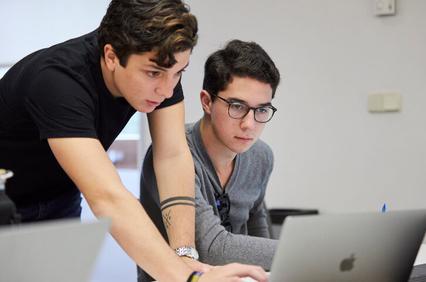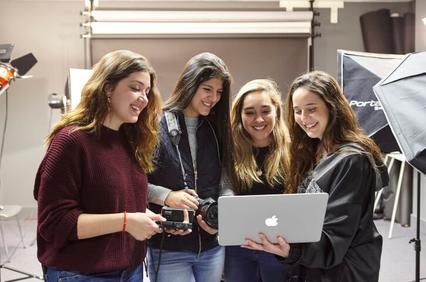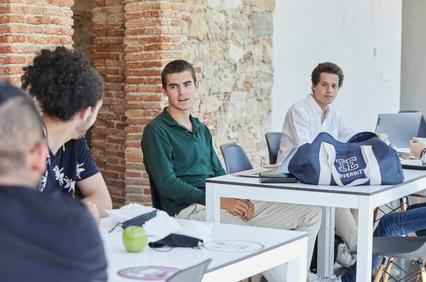IE IMPACT is a multidisciplinary, academic program consisting of 21 ECTS for all IEU students whose mission is to develop leaders of positive change. IE IMPACT aims to enlighten IE students about some of the world’s most complex challenges facing humanity and to empower them, via the IE Challenge, to help real-world enterprises – whose missions are driven by sustainability or the Sustainable Development Goals – amplify or scale their positive impact.
Consisting of courses in the Humanities (6 ECTS), Technology (3 ECTS) and Entrepreneurship (6 ECTS), IE IMPACT reinforces these three foundational pillars of IE University, and centers Diversity and Sustainability throughout the entire learning journey, which culminates with the IE Challenge (6 ECTS).
Students from all IE schools and undergraduate degrees come together in this dynamic program where they are introduced to some of the most complex issues and challenges facing societies; develop a working knowledge of the technologies that are applied to address these challenges, while contemplating their implications; and develop an entrepreneurial mindset by learning to ideate, design and validate business models that can serve to make positive change happen over the long-term. Finally, student teams tackle problems faced by real-world enterprises by ideating and designing proposals as Innovation Consultants to help their clients amplify or scale the positive impact of their sustainability-driven missions.
THE THREE PILLARS + IE CHALLENGE
THE THREE PILLARS + IE CHALLENGE
HUMANITIES
In the Humanities, students choose among an array of courses that serve to raise their awareness of and address complex issues and challenges societies face around the world. Students learn to observe, reflect and compare, question and analyze, and then synthesize and communicate their conclusions – all of which are necessary to develop critical thinking. By providing a foundation in the Humanities, students are exposed to diverse approaches, ideologies and responses to problems societies have faced historically, providing them with frameworks from which to tackle current and future challenges. We aim for IEU students to develop a humanistic approach to critical thinking, decision-making and inter-personal relationships.
TECHNOLOGY
In Technology, students learn about technologies that are having the greatest impact on solving some of the world’s most pressing societal challenges and are reshaping how societies, enterprises and individuals interact and operate or behave; they learn how and when such technology can be applied, and about their possibilities and limitations; students learn technologies such as the Internet of Things, Artificial Intelligence, Data Science, Blockchain and Cloud Computing and contemplate and analyze the implications of applying such technologies, including such important aspects as ethics, bias and security.
ENTREPRENEURSHIP
In Entrepreneurship, students learn to step out of their comfort zones, question both themselves and existing solutions and/or systems, and work in conditions of uncertainty; they develop entrepreneurial mindsets by ideating, designing, and validating business models that can be applied to solve problems over the long-term. Students deepen their development as innovators, and they develop key team-work skills, while continuing to learn about themselves, their team-mates, and the value of diversity. Ultimately, students will not only learn how to identify problems but how to identify problems that are worth solving and how to provide enduring solutions to those problems to achieve the greatest positive impact.
The culmination of IE IMPACT is the IE Challenge. Students apply the skills, mindsets, and awareness they have been developing during the three foundational pillars of the program to work in teams as Innovation Consultants for enterprises whose business models are driven by sustainability or the Sustainable Development Goals (SDGs).
Students work in diverse teams as Innovation Consultants; they attend facilitated design-thinking workshops; meet and strategize together as a team; research and engage directly with their client’s stakeholders; consult with and brief their clients (the participating enterprises); and receive ongoing mentoring and support to develop the skills, knowledge and mindsets they need to work successfully in diverse teams so that they can ideate, validate and pitch proposals to their clients that not only provide value but help their clients amplify or scale the positive impact of their sustainability-driven missions.



